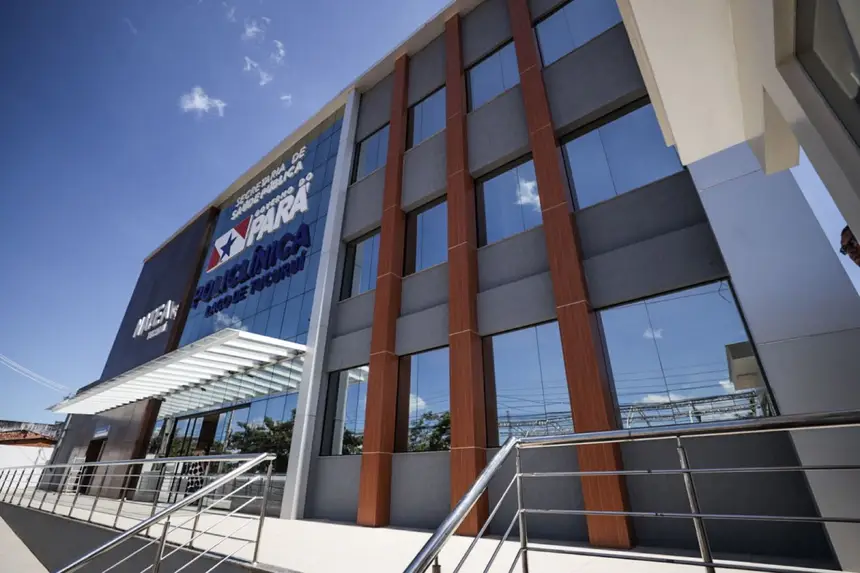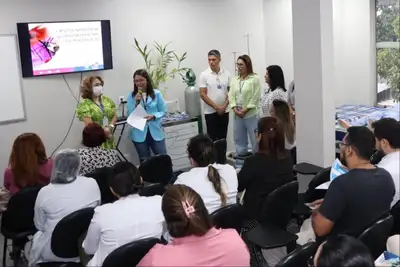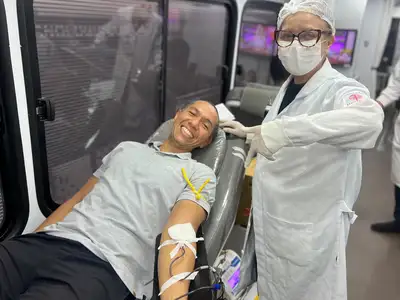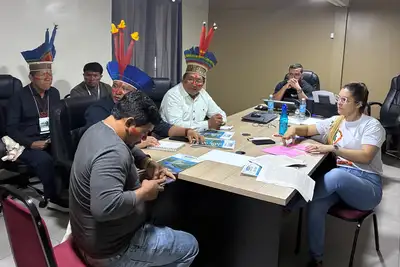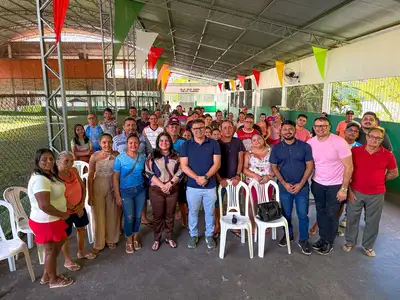Polyclinic Lago de Tucuruí warns about the importance of prevention and early diagnosis of thrombosis
The Government of Pará unit offers specialized clinical care, exams, and monitoring of patients with suspected or confirmed diagnosis of the disease
At the Polyclinic Lago de Tucuruí, health care goes beyond medical attention; it also involves raising awareness among the population about risks that often go unnoticed. One of these dangers is thrombosis, a silent disease that can manifest without apparent symptoms but can lead to serious consequences, such as pulmonary embolism.
According to data from the Ministry of Health, in 2024, more than 75,000 cases of the disease were reported in the country. In the first half of 2025 alone, the number has already exceeded 36,000, almost half of what was projected for the year, a warning that concerns specialists.
Dr. Thaísy Primo, a general practitioner at the Polyclinic, explains that thrombosis occurs when a clot blocks blood flow, usually in the legs, causing pain and swelling, and that it develops when there is slow blood flow, damage to the vessel walls, and a greater tendency for blood to clot.
“Thrombosis can develop silently, but it is linked to factors that often go unnoticed in daily life. Staying seated or lying down for long periods, suffering minor trauma to the legs, or having conditions that increase blood coagulation are situations that favor the onset of the disease,” explains the professional.
Thaísy also highlighted that some factors increase the risk of developing thrombosis and deserve special attention. “Recent surgeries, especially orthopedic and abdominal, as well as the use of contraceptives, pregnancy, postpartum, obesity, and smoking can raise the chances of clot formation,” she explains.
The doctor adds that people with cancer, chronic inflammatory diseases, or a personal or family history of thrombosis should also maintain regular follow-up and adopt habits that promote good blood circulation.
Symptoms and Prevention
The first signs of thrombosis tend to be subtle but should not be ignored. Pain and swelling in one leg, a feeling of warmth, redness, and hardness in the area are the main alerts. In more severe cases, when the clot migrates to the lungs, it can cause sudden shortness of breath, chest pain, and even coughing up blood.
According to Dr. Thaísy Primo, recognizing the signs is crucial to avoid complications. “It is common for the patient to confuse the onset of thrombosis with a simple muscle ache, delaying diagnosis. Any persistent discomfort, especially in one leg, should be evaluated by a healthcare professional,” she advises.
The specialist emphasizes that prevention is the main ally in combating the disease. “Small actions make a difference: moving frequently, especially during long trips or periods of rest, staying hydrated, avoiding smoking, and keeping weight under control. In some cases, the doctor may recommend the use of compression stockings or anticoagulants,” advises Thaísy.
Specialized Care
The Tucuruí Polyclinic, managed by the Institute of Social and Environmental Health of the Amazon (ISSAA), in partnership with the State Department of Public Health (Sespa), operates preventively and educationally, offering specialized clinical care, exams, and monitoring of patients with suspected or confirmed diagnosis of thrombosis.
The doctor emphasizes that the goal is to ensure comprehensive care, with safety and quality. “Our commitment is to care for people with attention and empathy, providing guidance and treatments that promote health and quality of life,” highlights Thaísy Primo.
Regulation - To access the services of the Polyclinic, it is necessary for the user to go through the regulation system, after initial care and evaluation in primary health care, such as health posts and Basic Health Units (UBSs). This ensures an equitable distribution of services, prioritizing those who need it most.
Service - The unit is managed by the Social and Environmental Institute of the Amazon (ISSAA) in partnership with the State Department of Public Health (Sespa). The Polyclinic Lago de Tucuruí is a public unit located at Avenida Raimundo Veridiano Cardoso, No. 1008, in the Santa Mônica neighborhood, in Tucuruí. The service is provided from Monday to Friday, from 7 am to 7 pm, completely free of charge, through the Unified Health System (SUS).
Text by Ederson Oliveira




